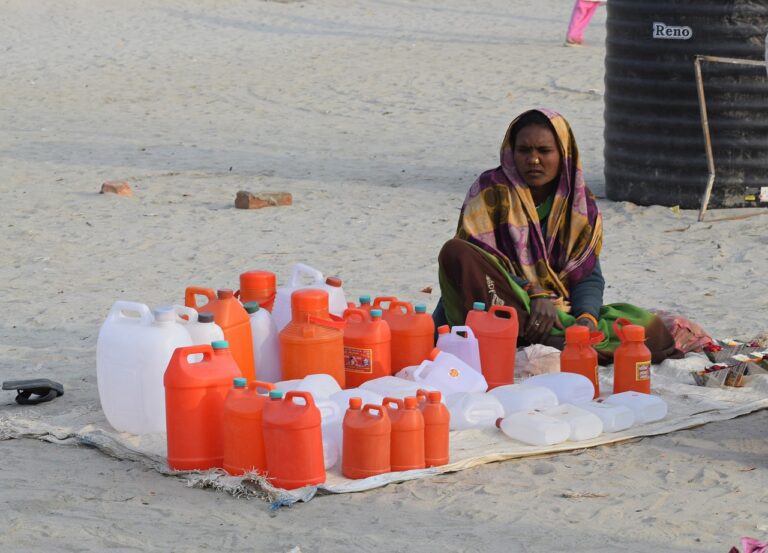The Influence of Lobbying on Election Laws and Regulations
sky247 login, diamondexch9.com, tiger exchange: Ensuring impartiality in election administration is crucial to upholding the democratic process. It is essential that legal frameworks are in place to guarantee fair and transparent elections. Without impartiality, there is a risk of disenfranchisement, mistrust, and even fraud. In this article, we will discuss the importance of impartiality in election administration and explore the legal frameworks that govern it.
Why is impartiality in election administration important?
Impartiality in election administration is essential for several reasons. Firstly, it ensures that all candidates and parties have an equal opportunity to compete in the election process. Without impartiality, there is a risk of bias, favoritism, and unfair treatment.
Secondly, impartiality is crucial for maintaining public trust in the electoral process. When voters believe that elections are conducted fairly and transparently, they are more likely to have confidence in the outcome. On the other hand, any perception of bias or manipulation can erode trust and undermine the legitimacy of the election.
Finally, impartiality is necessary to prevent fraud and corruption. By having a strict legal framework in place that governs election administration, we can minimize the risk of irregularities and ensure that the results accurately reflect the will of the voters.
Legal frameworks for ensuring impartiality
There are several legal frameworks in place to ensure impartiality in election administration. These frameworks typically include rules and regulations that govern the conduct of elections, the duties of election officials, and the rights of candidates and voters. Some key components of these legal frameworks include:
1. Election laws: Most countries have specific laws that regulate the conduct of elections. These laws typically outline the procedures for voter registration, candidate nomination, ballot casting, and vote counting. They also establish the duties and responsibilities of election officials, such as ensuring the security and integrity of the electoral process.
2. Electoral commissions: Many countries have independent electoral commissions that oversee the administration of elections. These commissions are responsible for enforcing election laws, resolving disputes, and certifying election results. By having an independent body that is separate from the government, we can ensure that elections are conducted impartially and fairly.
3. Transparency measures: Legal frameworks often include provisions that require transparency in the electoral process. This can include measures such as open access to voter rolls, public observation of polling stations, and the publication of election results. By increasing transparency, we can hold election officials accountable and build public confidence in the integrity of the process.
4. Checks and balances: Legal frameworks may also include mechanisms for ensuring checks and balances in the election administration. For example, there may be provisions for challenging election results, conducting recounts, or investigating allegations of fraud or misconduct. These checks and balances help to ensure that the process is fair and free from manipulation.
5. Voter education: Legal frameworks may also include provisions for voter education initiatives. By informing voters about their rights and responsibilities, we can empower them to participate effectively in the electoral process. This can help to prevent voter suppression, ensure a high turnout, and promote a more inclusive democracy.
6. International standards: Many countries also adhere to international standards and conventions that govern election administration. For example, the International IDEA’s Declaration of Principles for International Election Observation outlines several key principles, including impartiality, transparency, and integrity. By adhering to these international standards, countries can demonstrate their commitment to upholding democratic values.
FAQs
Q: What is the role of election observers in ensuring impartiality?
A: Election observers play a crucial role in ensuring impartiality in the electoral process. By monitoring the conduct of elections, observing polling stations, and reporting any irregularities, election observers help to hold election officials accountable and promote transparency.
Q: How can voters ensure that elections are conducted impartially?
A: Voters can help to ensure that elections are conducted impartially by staying informed about their rights, reporting any irregularities or misconduct, and participating actively in the electoral process. By holding election officials accountable and demanding transparency, voters can help to safeguard the integrity of the election.
Q: What are some common challenges to impartiality in election administration?
A: Some common challenges to impartiality in election administration include political interference, lack of resources, inadequate training for election officials, and voter suppression. By addressing these challenges through robust legal frameworks and oversight mechanisms, we can promote fair and transparent elections.
In conclusion, ensuring impartiality in election administration is essential for upholding the democratic process. By implementing strong legal frameworks, promoting transparency, and empowering voters, we can help to safeguard the integrity of elections and build public confidence in the electoral process. Upholding impartiality is not just a legal requirement it is a fundamental aspect of democracy that must be protected and defended at all costs.







